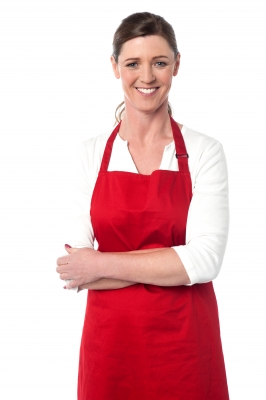If you have a true passion for food, and love preparing it, attending culinary school may be the perfect way to make a career doing something you love. While many chefs work their way up with industry experience–which is no doubt important– these days, more and more successful chefs got their foot in the door with a degree from a good culinary school, and if they are the ones doing the hiring, may be more interested in educational experience. It seems like this may be becoming the preferred way to break into this field.
There are lots of things to think about when choosing your school, and here are just a few to get you started in narrowing down your options.
What are Your Goals?
Right now, you may be thinking that you just love cooking or baking, and want to do it professionally. That is great, but you are going to have to get a bit more specific. What do you picture yourself doing after you get your degree? What are your goals? What sort of programs are most interesting to you? Are you hoping to cook in a restaurant, manage one, work in one, be a banquet hall manager or open a catering business? If you have visions of managing or owning a business, it would be good to have a program that offered business courses as well. Give this some thought, and examine programs carefully to best determine which oe will best prepare you to meet your goals.

Accreditation
When deciding on your culinary school, make sure it has accreditation from the American Culinary Federation, which oversees culinary schools. Any institution with this accreditation has undergone the thorough evaluation of its instructor certification, student-to-teacher ratio, facilities and curriculum set forth by this organization. Going to an ACF-accredited school ensures you will be receiving a top-quality culinary education. The top culinary schools in America will all have this accreditation.
It is also important to remember that to get a good education, you don’t necessarily have to attend one of the major institutions. Many smaller schools, and even programs within community colleges, have received this accreditation. This means you can get solid training without going into massive debt if that is a major concern.
Hands-On Instruction
Hands-on instruction is crucial, particularly if you have the goal of working in a kitchen someday. It is fast-paced and stressful, and you need to prepare yourself as best you can. Good programs have student-run restaurants that provide you with an accurate picture of what it is like to work in a real restaurant. Check if the program offers this, and if it does, how closely does it mirror the real experience. If you are only serving a few dozen people a day, that really doesn’t paint an accurate picture of an average restaurant. Some schools offer multiple dining facilities that serve hundreds of people between them.
Many schools may require you to earn course credits by working in a real restaurant—even if your school doesn’t require it, it would be a good idea to do so anyway.
If you keep these three considerations in mind, you are well on your way to finding the best school for your needs.
